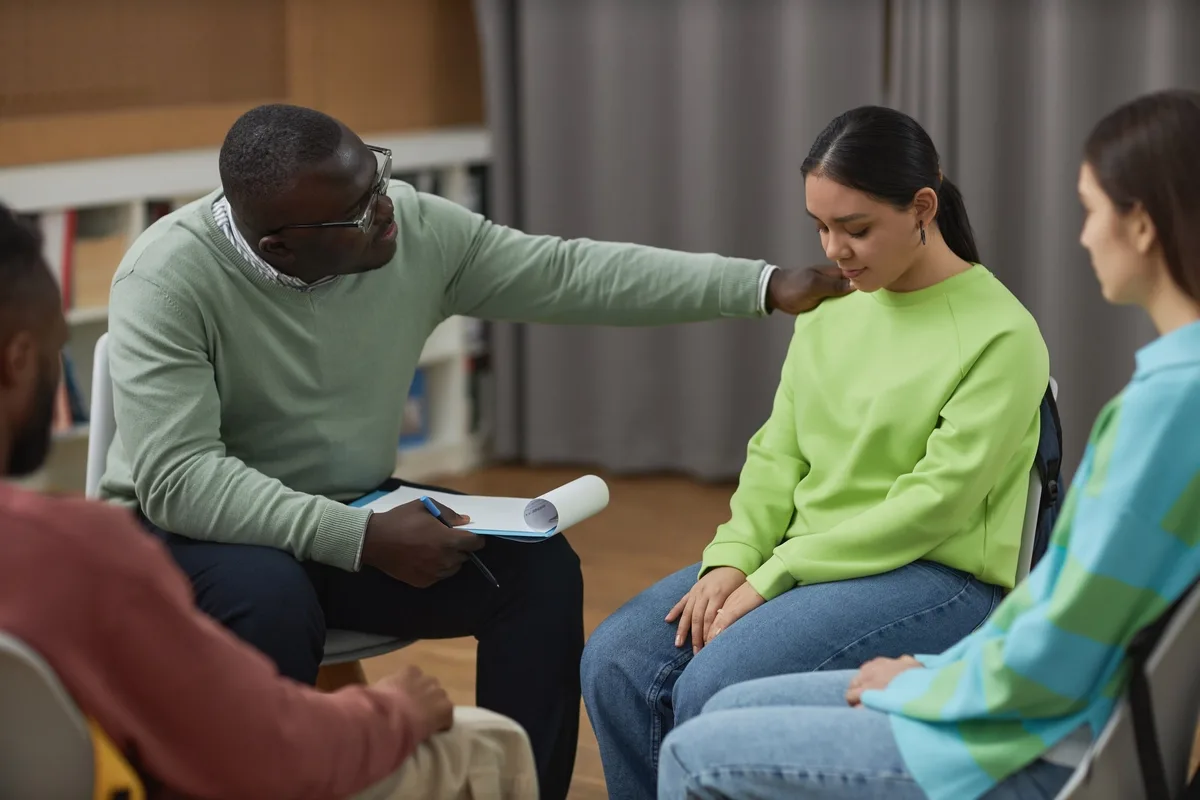24/7 Helpline:
(866) 899-221924/7 Helpline:
(866) 899-2219
Learn more about PTSD Treatment centers in Jones County
PTSD Treatment in Other Counties

Other Insurance Options

UMR

Holman Group

BlueCross

Health Net

United Health Care

Providence

Optima

ComPsych

Cigna

Choice Care Network

State Farm

Ceridian

Oxford

Multiplan

Evernorth

PHCS Network

Group Health Incorporated

Covered California

CareFirst

Magellan Health

ASAC – Area Substance Abuse Council
ASAC–Area Substance Abuse Council, located in Anamosa, Iowa, provides comprehensive mental and behav...

Fairview Counseling at Wyoming
Fairview Counseling at Wyoming is a private rehab located in Wyoming, MN. Fairview Counseling at Wyo...







































Hope Network Grand Rapids Center and Administration
Hope Network Grand Rapids Center and Administration is a private rehab located in Wyoming, Michigan....

CONCERN – Wyoming
CONCERN Professional Services - 1120-C Hobart Avenue is a non-profit rehab located in Wyoming, PA. C...

Developing Apex
Developing Apex is a private rehab located in Wyoming, Pennsylvania. Developing Apex specializes in ...

The Providence Center – Women’s Road to Recovery
The Providence Center - Women's Road to Recovery is located in Wyoming, RI. The Providence Center - ...





































































